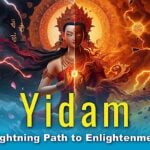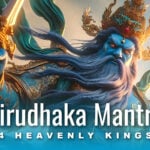“We offer Thich our powerful collective energy”: People Around the World Hope for Fast Recovery for Renowned Buddhist Teacher Thich Nhat Hanh
“Our practice of stability and peace in this very moment is the best support we can offer to [Nhat Hanh]. Let us all around the world take refuge in our practice, going together as a river to offer [Thich] our powerful collective energy. We are all cells of the great Sangha Body that Thay has manifested in his lifetime.” [1]
— Statement from Plum Village monastery in France
Buddhists and well-wishers around the world continue to send healing wishes to the great teacher and peace-activist Thich Nhat Hanh. In an official announcement from Village Des Pruniers to Village Practice Centers and all Sangha’s worldwide, his followers stated:
“With a deep mindful breath we announce to the world the news that yesterday, the 11th of November 2014 Thay, Zen Master Thich Nhat Hanh, experienced a severe brain hemorrhage. Thay is receiving 24 hour intensive care from specialist doctors, nurses and from his monastic disciples.”
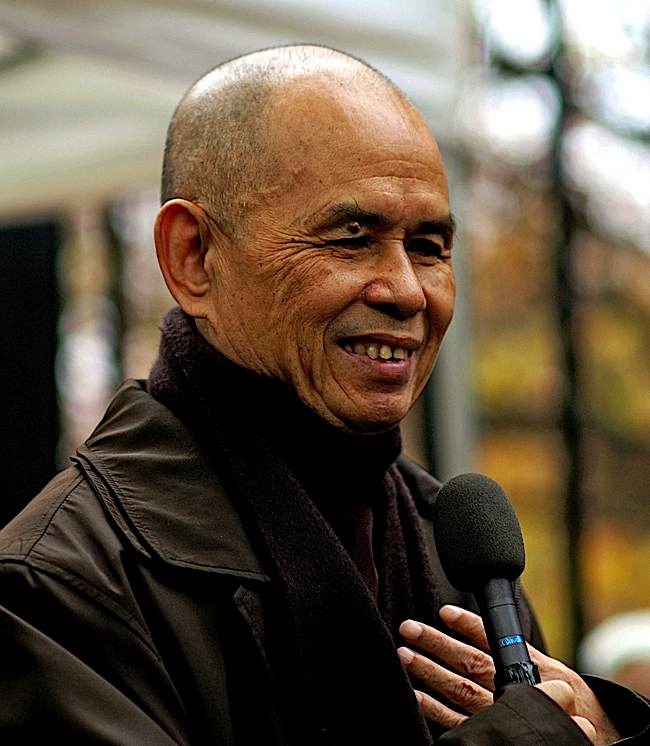
The statement continues, thankfully, to announce that Thay “is still very responsive” and concludes “full recovery may be possible.”
Plum Village indicated that Thay’s health had been fragile in recent months due to advanced age. The wellspring of goodwill unites all Buddhists, peace activists and people around the world in sending supportive thoughts and good wishes to the great teacher, known affectionately as Thay.
Buddhist Sanghas everywhere are dedicating healing practices, meditation practices and support—far beyond the already extensive Plum Village network.
Buddha Weekly joins in urging Buddhists around the world to think of Thay, to dedicate some practice time, meditation or good wishes for Thay’s recovery.
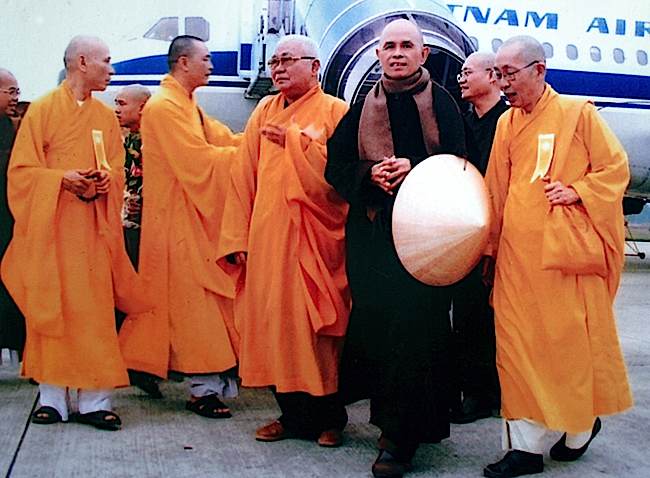
About Thay
For those few who do not know Thay by reputation, Thich Nhat Hanh is best known, perhaps, to non-Buddhists as a peace activist. He famously nominated Martin Luther King for a Nobel Peace Prize, and was in turn nominated himself for his work internationally in promoting peace and tolerance. He is an exile from his home Vietnam.
He is known to Buddhists around the world as a great Zen teacher, who published more than 100 well-respected and approachable books. His writings on mindfulness and meditation are studied by non-Buddhists. His works on Emptiness are perhaps the most approachable on a very deep topic, the inevitable “first read” for anyone contemplating the extraordinary Diamond Sutra. Many books such as Living Buddha, Living Christ are bestsellers. He is well known as the creator of the terms, “Engaged Buddhism” and “Inter Being.”
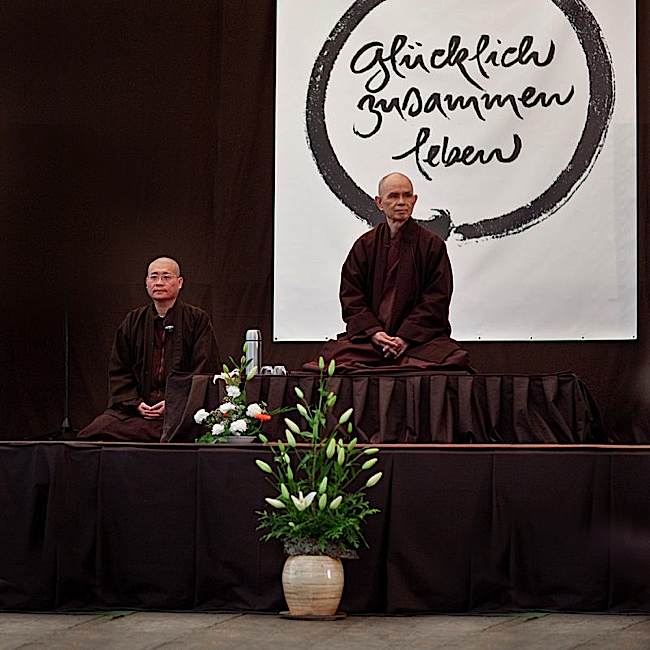
Born in 1926 in Central Vietnam, he entered a monastery at the age of 16. He is now recognized as a Dharmacharya and the spiritual head of Tu Hieu Temple. He led non-violent peace efforts in Vietnam, taught as a lecturer at Columbia University, lead a symposium at Cornell University, and taught extensively on themes of tolerance, peace and mindfulness. He was instrumental in encouraging Martin Luther King Jr to publicly denounce the Vietnam War.
Thay Nominated for Nobel Peace Prize
Dr. King nominated Thay for the 1976 Nobel Peace Prize, writing “I do not personally know of anyone more worthy of [this prize] than this gentle monk from Vietnam. His ideas for peace, if applied, would build a monument to ecumenism, to world brotherhood, to humanity.” [2]
Teachings on Emptiness
Amongst Buddhists of any tradition, Thay’s writings on Emptiness remain one of the best introductions to the vast topic. Explaining the concept with beautiful, easily-comprehended metaphors, and a new term he coined and beautifully expounded on—Inter Being—his teachings are seminal amongst the Zen Buddhist community, and often referred to by Buddhists of all traditions.
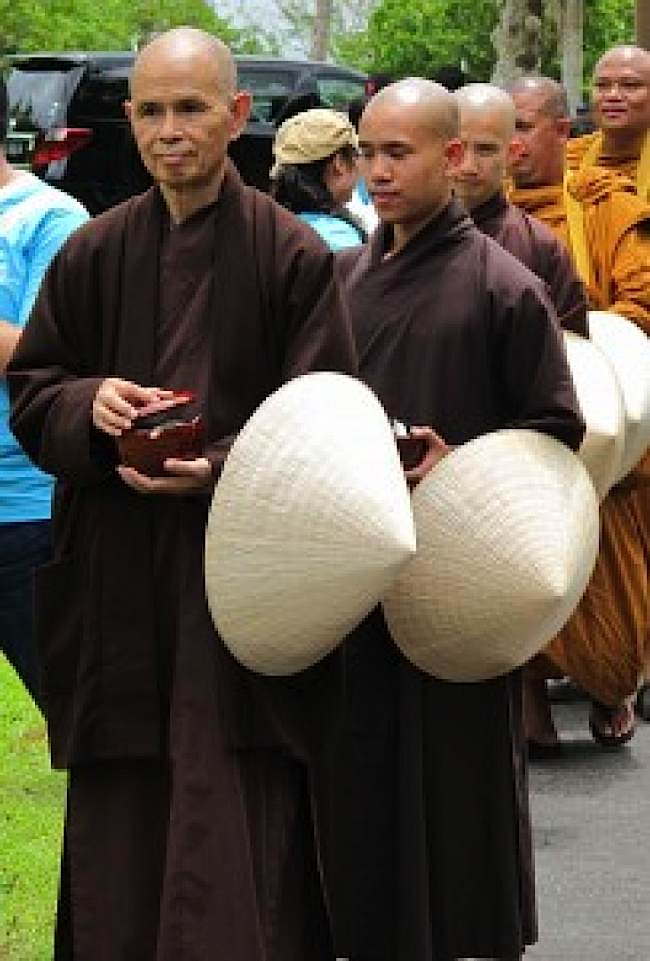
Thay’s Writings
Thay is one of the most prolific Buddhist and peace activist writers. His writings and books include:
[1] Plum Village Mindfulness Practice Centre website.
[2] King, Martin Luther, Jr. (letter) (January 25, 1967). “Nomination of Thich Nhat Hanh for the Nobel Peace Prize”. Archived on the Hartford Web Publishing website. Retrieved 13 September 2010.
More articles by this author

Three Higher Trainings: ethics, concentration, and wisdom. Venerable Robina Courtin teaches the vitally important Three Precious Trainings in a weekend workshop in Toronto

“If you take meat, it goes against the vows one takes in seeking refuge … you have to take a being’s life.” — Kyabje Chatral Sangye Dorje
Search
Latest Features
Please support the "Spread the Dharma" mission as one of our heroic Dharma Supporting Members, or with a one-time donation.
Please Help Support the “Spread the Dharma” Mission!

Be a part of the noble mission as a supporting member or a patron, or a volunteer contributor of content.
The power of Dharma to help sentient beings, in part, lies in ensuring access to Buddha’s precious Dharma — the mission of Buddha Weekly. We can’t do it without you!
A non-profit association since 2007, Buddha Weekly published many feature articles, videos, and, podcasts. Please consider supporting the mission to preserve and “Spread the Dharma." Your support as either a patron or a supporting member helps defray the high costs of producing quality Dharma content. Thank you! Learn more here, or become one of our super karma heroes on Patreon.
Josephine Nolan
Author | Buddha Weekly
Josephine Nolan is an editor and contributing feature writer for several online publications, including EDI Weekly and Buddha Weekly.




